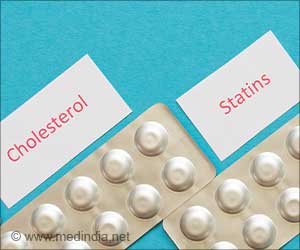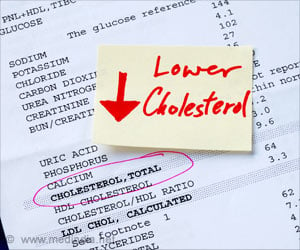A new Canadian study seeks to repudiate some recent findings that showed drug-coated stents could be risky for certain high-risk patients.
Stents are little wire-mesh cylinders that prop open coronary arteries to prevent heart attacks.The current debate centres on whether the drug-coated stents increase the risk of fatal blood clots compared with traditional stents that don't release medication to prevent reclogging of an artery.
The Canadian study that followed more than 3,700 patients is providing some pretty strong evidence that "drug-eluting" stents do not boost the risk of heart attack death when used in certain high-risk patients.
In fact, for whatever reason, patients given drug-coated stents in this study had a slightly lower death rate than those with conventional stents.
"After three years, the mortality rate was actually a little bit lower for the drug-eluting stent patients," 5.5 per cent versus 7.8 per cent of patients given standard bare-metal stents, said lead author Dr. Jack Tu, a senior scientist at the Institute for Clinical Evaluative Sciences (ICES).
Furthermore, "compared to bare-metal stents, the drug-eluting stents reduce the need for patients to have a second procedure, that is either a second angioplasty or bypass surgery," said Tu, a cardiologist and epidemiologist at Sunnybrook Health Sciences Centre in Toronto.
Advertisement
As well, drug-coated stents appeared most effective in patients with certain underlying conditions: diabetes, very small blood vessels and lengthy blockages in vessels.
Advertisement
The study, published in Thursday's issue of the New England Journal of Medicine, used health records from 3,751 patients in Ontario, about half of whom received drug-coated stents and the other half traditional stents.
The research was aimed at determining safety and cost-effectiveness of drug-eluting stents, which run about $2,300 each, compared to $700 for bare-metal stents.
Since their introduction to much fanfare in 2003, more than six million drug-eluting stents have been implanted in heart patients worldwide, creating a $5-billion a year market.
But when recent studies from Europe and Sweden suggested drug-coated stents might increase heart attack and death rates, use of the devices dropped dramatically in some counties, including the United States.
This study may help change that trend, experts commenting on the research say. "This is an important study that represents real-life experience in Canada," said Dr. Todd Anderson, chief of cardiology at the University of Calgary. "Reassuringly, it shows us that … the need for having a second procedure is reduced.
"More importantly, it demonstrates that there is no increase in mortality or late miocardial infarction (heart attack) in those individuals who receive the drug-eluting stent," Anderson, a spokesman for the Heart and Stroke Foundation, said Wednesday from Calgary, Canada.
Source-Medindia
GPL/C






